#belle is my main
Text

brawl stars doodles
#brawl stars#brawl stars fanart#fanart#angelo brawl stars#penny brawl stars#jessie brawl stars#bull brawl stars#berry brawl stars#sam brawl stars#belle brawl stars#pearl brawl stars#belle is my main#i love her sm#brawl stars art#art#doodles#i love brawl stars#SHARKAIT
480 notes
·
View notes
Text

“The sun on her shoulders, wind in her hair…”
“…And suddenly Hades, was only a man,”
Was outlining what I had in mind for this AU, but I had this scene stuck in my head all day.
Bonus:

#cotl#cult of the lamb#botd au#bells of the damned au#cotl lamb#cotl narinder#cotl narilamb#narilamb#lamb x narinder#narinder x lamb#fanart#main inspo for this scene was the live version of Epic iii from Hadestown#the song had been stuck in my head since middle school#now I can finally use it for something mwah hahaha!!! >:D
2K notes
·
View notes
Text
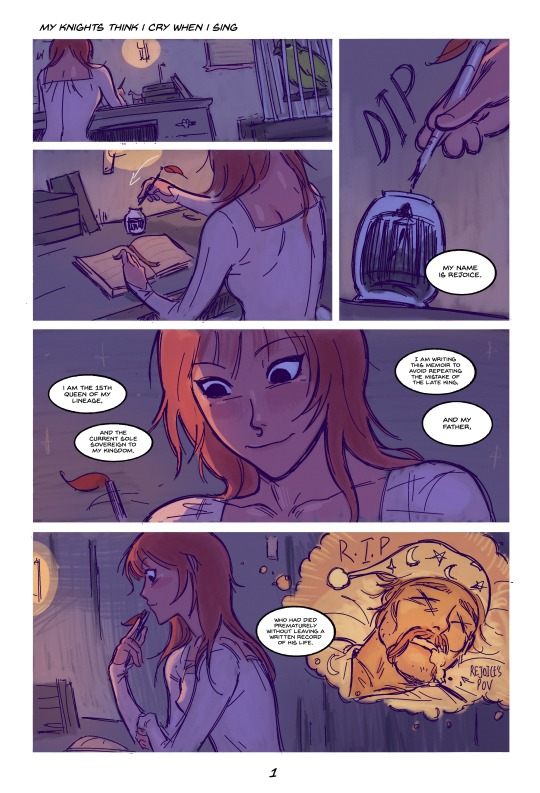
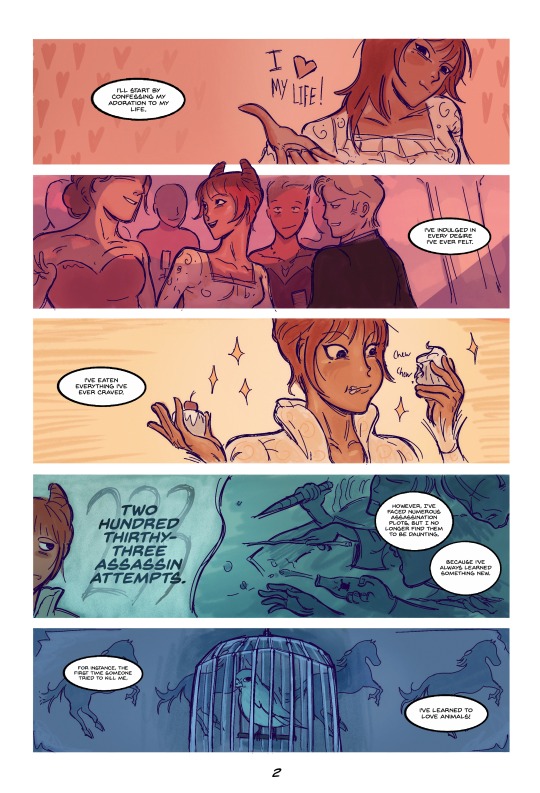
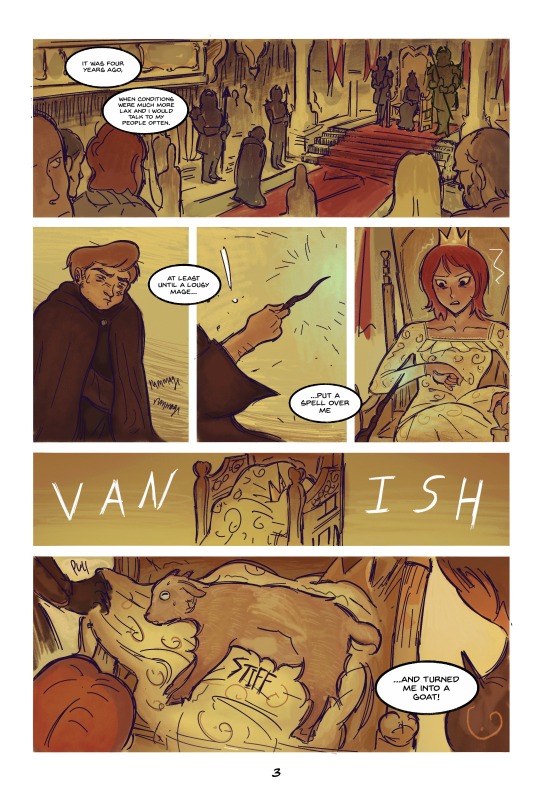
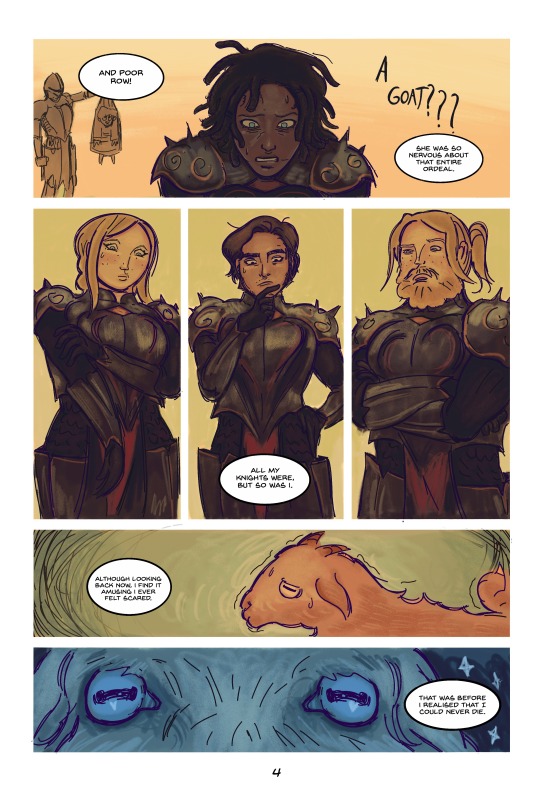
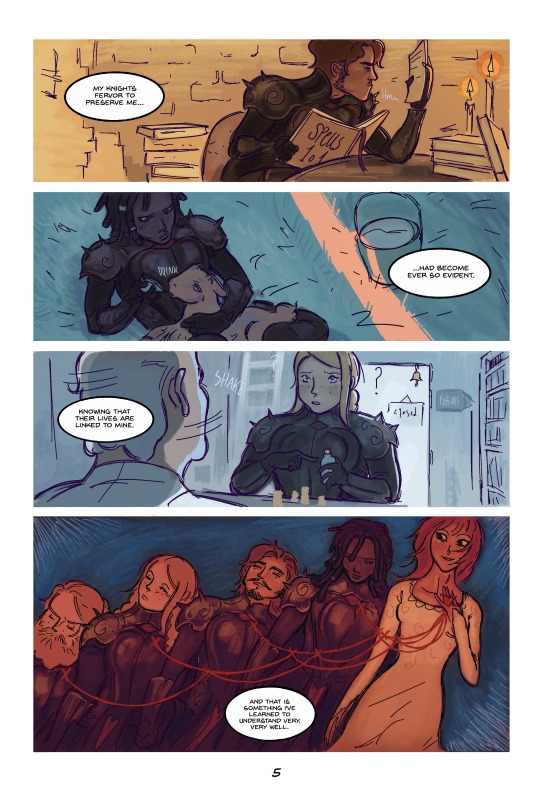
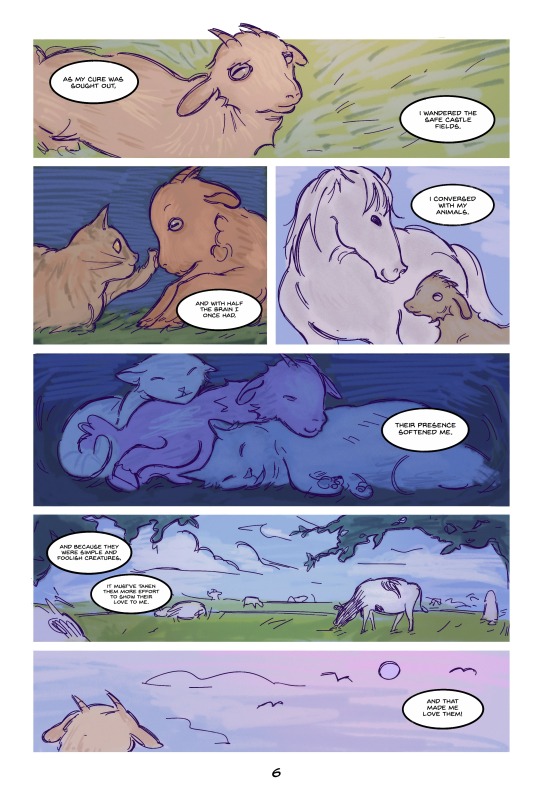
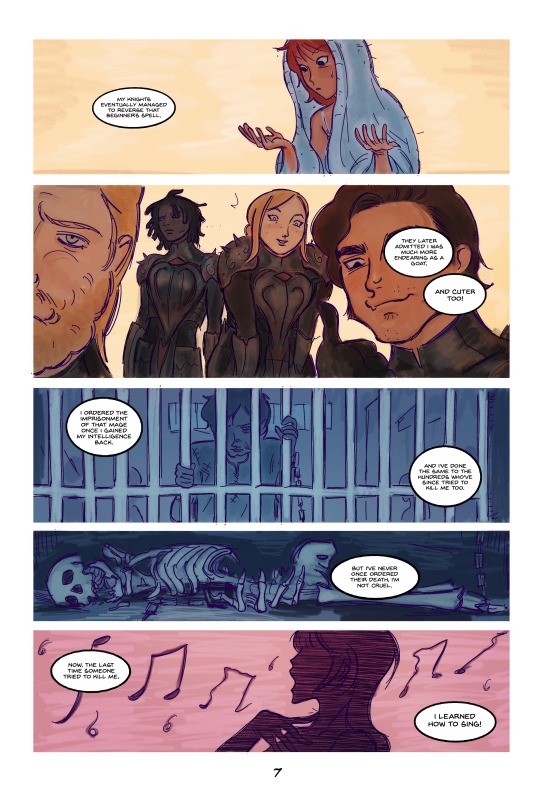
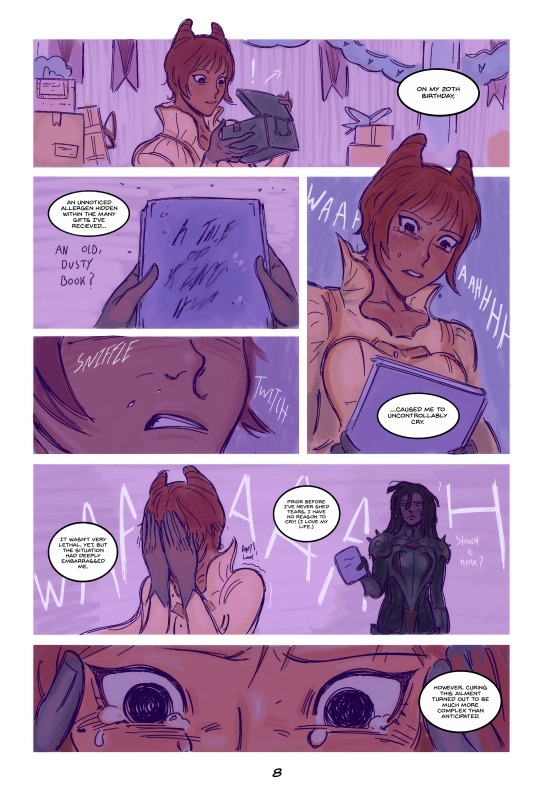
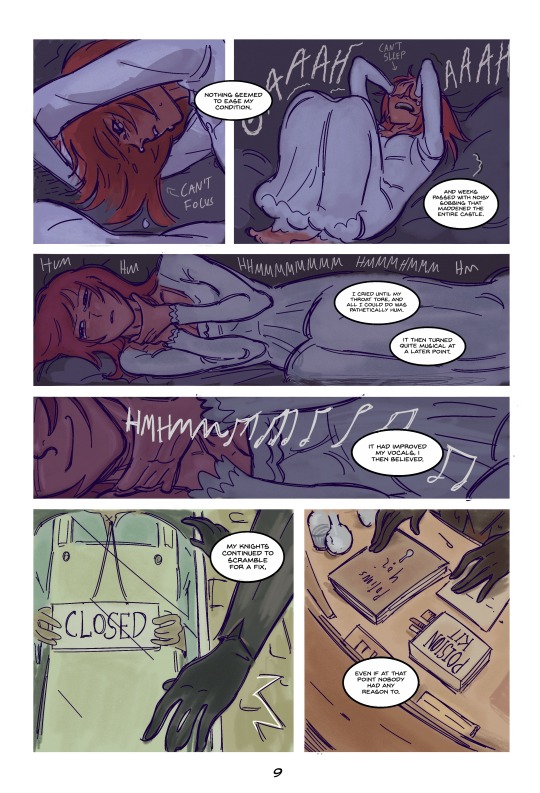
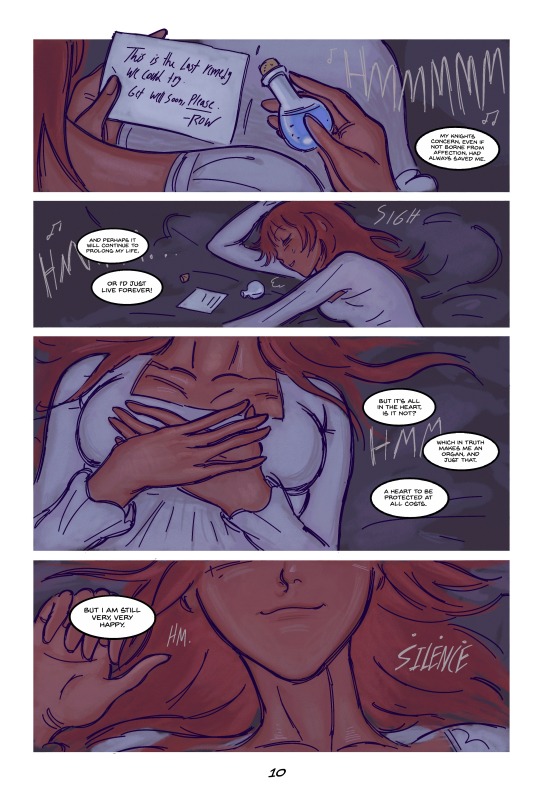
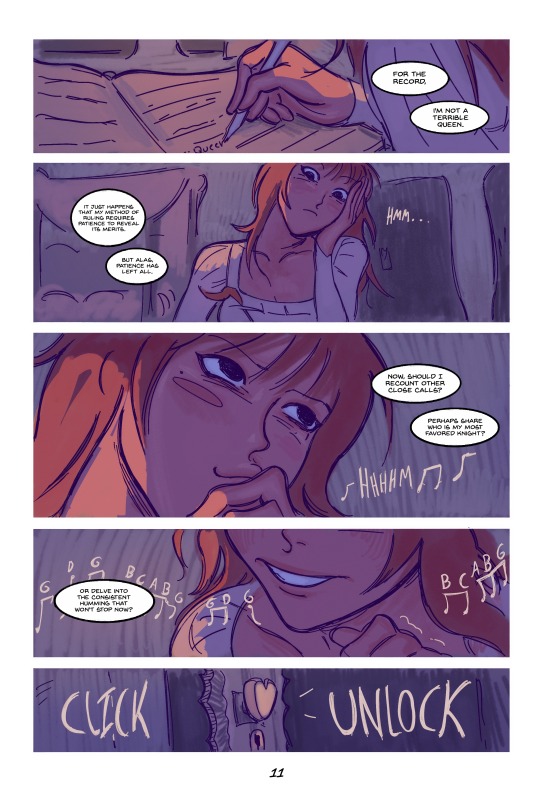
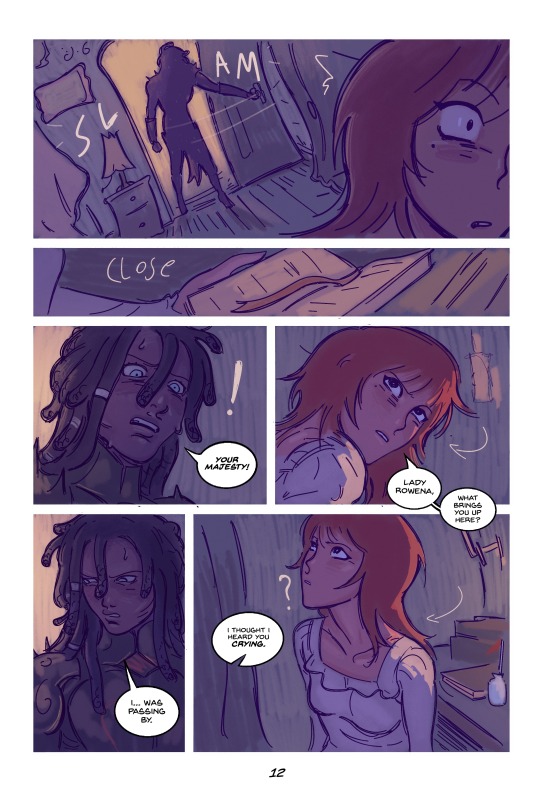
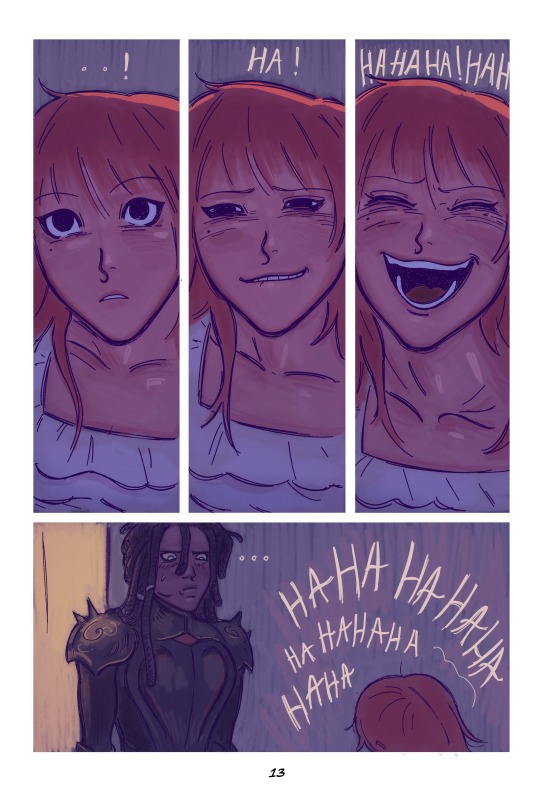
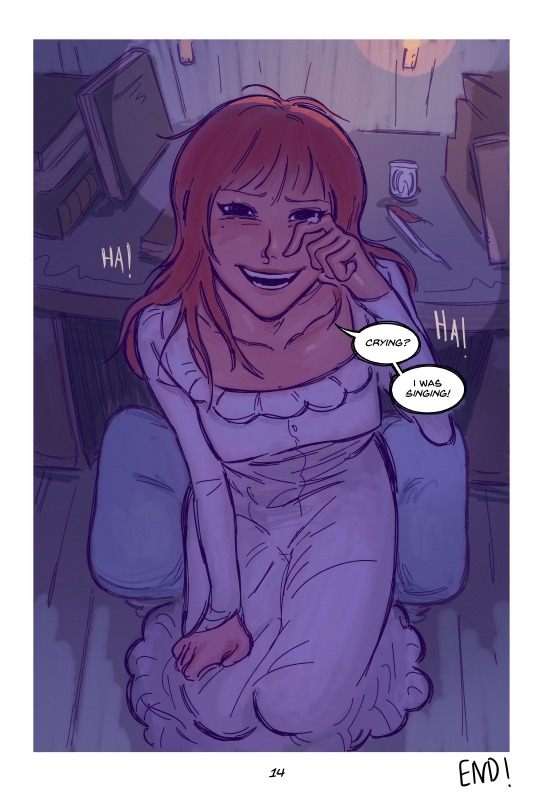
mini comic about a kinda freaky terrible queen and the nonsensical takes she has about the times people have tried to kill her
(more thoughts in notes)
UP NEXT! ANOTHER short comic, (and then one more) this time taking place one month before the kings death, in which we will have: one annoying prince! one lousy fight scene! rejoice's dismissive nature! and row reveals a secret.... tune in next time for all that
#comic#webcomic#original comic#original character#ocs#alr bro it's not that funny#this is based on a true story that has happened to me#and continues to happen#this is NOT the main comic plot#just doing mini comics before working on the actual thing#to hopefully work towards a more final cohesive style#cus this is kind of all over the place but we live and we learn#anyways:#she just views things differently#nobody believes what u believe#interpt it as u want#shes just learning all the wrong lessons#the notes she's humming are to ding dong bell#which is a nursery ryhmes that teaches u to be kind to animals :)#unfortunately my genius wont show until the main comic is done#queen rejoice
1K notes
·
View notes
Text
I'm currently crocheting a bag that looks like a jellyfish and it may be my best work yet
#im just kinda making it up as i go#the main body is a purple ombre yarn so it starts dark purple at the bottom and gets lighter at the top of the belle#i just made a classic drawstring bag and am adding a few layers of ruffles around the bottom now to give it that cabbagehead look#and my final step will be adding the long tendrils with different pinks and purples i have scraps of#its gonna rule just wait#crochet
146 notes
·
View notes
Text
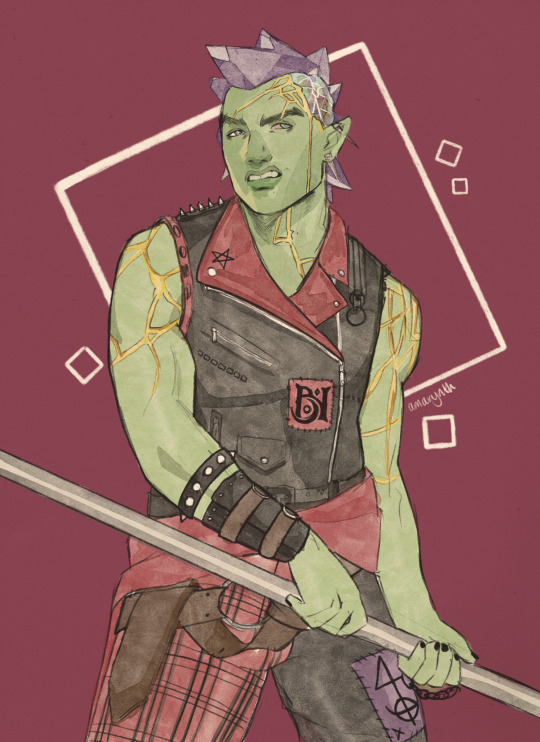
all the rage
#critical role#ashton greymoore#bells hells#cr#dungeons and dragons#cr is like my main interest rn but i never draw for it so here’s ashton#my art
3K notes
·
View notes
Text
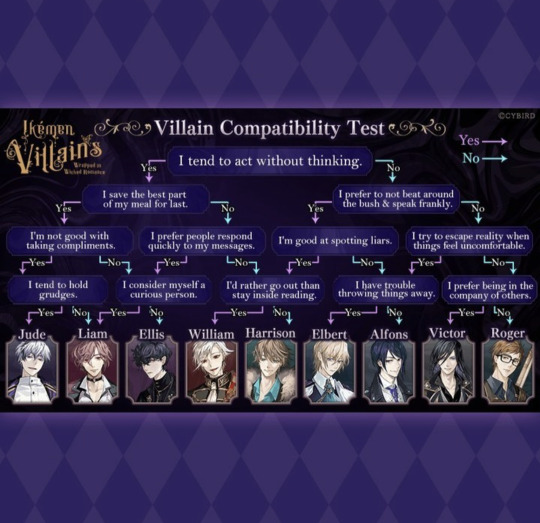
not me immediately getting jude from this
who did you guys get? 👀
#idk any of them i just see jude around a lot so it made me chuckle#@/judejazza and their wonderful posts i often run into#victor is apparently my opposite from these options and elbert is my 2nd choice or smth#(friends and i usually do 'quizzes' 3x to get our main/secondary/opposite)#anyway im just snooping around now. still not sure how i feel abt it but was never too tempted for ikevil.#the less gacha in my life atp the better ngl ;;;;;;;; its why ive stayed away from most of the new games and tryna limit current ones#though if they ever do finally drop ikegen (unlikely asf) ..... count my ass in#i can't even be mad ikepri dropped bc ive enjoyed it so much more than i ever thought i would. easily my fav or 2nd fav bc ikerev#i still adore ikerev and magic and the world building and everything.. alice is just pretty dumb sometimes#which is why i adore b&tb-esque belle/emma so much. also why i like mai in some routes (ikesen humor op)#ikevamp has always just kinda been there tbh. usually the events feel more interesting than the routes ngl;;; charas are fun tho#anyway let's see how this bad boy goes#who did y'all get??#ikevil#ikemen villains#my post 📫#aerin.jpg#from the official ig acct btw
175 notes
·
View notes
Text



basil has a rough few years between doom upon all the world and trespasser
#got multiple greetings of 'you look terrible'' at halamshiral later#i just finished his main campaign and started trespasser and I'm so so so so excited#inquisitor trevelyan#dai#pavelyan#sera#Josephine#Cullen#the iron bull#cole#basil#my ocs#special mentions to bell eoin and evelyn for being his other emergency contacts#luxarts
74 notes
·
View notes
Text
























BOOM RANDOM DRAWINGS GO!!!!!!!!!!!
My style is all over the place lolololol. There is some dragon chimera Micah and random @amrass and The World inspired art
Snake Micah is @abovesn4kes 's design
72 notes
·
View notes
Text
i see people upset that it went to the crown keepers mid episode (and i get it! it was very unexpected) but think of it this way, this is a nice little break for the main cast after an emotional roller coaster of an episode that probably fucked them all up a little bit and it gives sam time to work on a new character and rejoin the table sooner rather then later. personally i think this is a good thing and it's also just a nice little break of the intensity of the main campaign as of late.
#for me personally i need this little break to mourn my favorite robot#i was not mentally prepared for main campaign stuff tonight but i tuned in anyways despite not wanting to#and now i'm really glad i did#critical role#cr3#crown keepers#bells hells#shouting into the void*#cr spoilers#spoilers
80 notes
·
View notes
Text
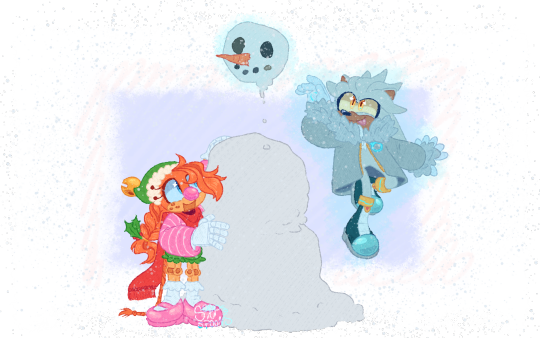
first gift piece!! [uh. excluding the rhythm heaven thing.] this was made for @eldritchgriffin for the @sonicfandomsecretsanta!!! i really like how this turned out, definitely one of my better pieces [even if the background is lacking rajhgkaj]
#silver the hedgehog#belle the tinkerer#god. why do i draw belle so well#arguably the only badnik i can draw besides like. motobugs and buzzbombers.#n e ways. hiiiii eldritchgriffin u follow my main so when i saw your name i was like ????? I KNOW THEM#i wouldve drawn the other characters too but . well.#me when in love with archie characters but dont actually know too much about them outside their wiki entries#n e ways x2 combo i hope you like it :3
89 notes
·
View notes
Note
i drew your long critter… your funny frin… i know theres a lot of weasel/ferret comparisons but… i couldnt resist making them shrimpy

ouuuuggghhhhsdhdgsghsjdhksj my!! animal!!!
these are so good i love em so much
#isat#in stars and time#isat au#putting this in the main tags. everyone look at this person's art!!! look!!!!!!!!!!!!!!!!#this is a primo design actually. i'm going to end up changing some of their design in my head its so good.#nothing that would result in written retcons... but... shrimps is sfifs.....#abcs fic#a bell chimes somewhere fic#im glad someone remembered the spots!! i think a lot of people forget about them.#eating this. btw
32 notes
·
View notes
Text
not to be delusional on main but i truly believe that tomgreg has the potential to go canon. greg’s dad is gay and if there’s one thing this show loves it’s generational similarities (and why bother having that be a plot point if not for later use). tom’s open marriage and hesitancy to cheat but easy intimacy with greg. the eventual crumbling of said marriage and tom’s subsequent closeness with greg as a blatant replacement for shiv. the ‘would you kiss me’ line, the ‘you’re mine’ water bottle pelting scene, the forehead kiss. not to fucking mention nero and sporus. tom has killed his wife, pushed her down the metaphorical stairs, and all that’s left now is for him to dress greg in her clothes and kiss him on the lips. all i’m saying is that i think the writers of succession are too smart to lay all this foundation and not follow through. it’s too good a show for that.
#jesse armstrong i am begging you on my hands and knees i am in tears i am offering you my firstborn child#also i do have a little more faith in hbomax being able to deliver with their queer characters they’ve got a good track record#plus succession has never shied away from discussions of queerness so idk the seeds have been planted or whatever#you’d think after so many years of being queerbaited i’d learn my lesson but here i am on main again talking about white boys going canon#i am the town fool. the court jester. my bells are jingling forlornly as i type this message#succession#tomgreg#tom wambsgans#greg hirsch
758 notes
·
View notes
Text
To Those Left Behind: Answering the anger of the survivors in My Hero Academia vs. Hosoda Mamoru’s Belle
Yes, it's another "What [X] Did Right That BNHA Is Doing Wrong" post. I'm not trying to make this a series, but what's a girl to do when everywhere she looks, she sees other stories that are handling elements of BNHA's endgame with far more grace and rigor? Hit the jump.
The Formula: The Hero vs. The Critic
A bugbear of mine in superhero fiction is when The Hero is presented with someone critiquing their heroism who immediately revokes their objections when The Hero saves them in turn. The basic shape of the story is as follows:
The Hero is confronted by The Critic in some situation that lacks immediate danger. The Critic has issues with The Hero’s day-saving activities. Perhaps in some earlier battle between The Hero and Some Villain, The Critic suffered property damage; they might also be an innocent bystander (or relative thereof) who was harmed in the fight. They might simply be a stickler for laws The Hero may or may not be acting in accordance with. Perhaps they even take issue with the suffering Heroes themselves endure, though in the case of this specific storyline, they’re more likely to be thinking of a different Hero in their lives than the one they’re actually confronting.[1]
The Critic presents an obstacle to the combat-focused method that is superhero fiction’s default mode of conflict resolution. They may endanger The Hero’s activities by threatening legal/institutional reprisal, or they may just be there to make The Hero feel bad about themselves. The Critic may be framed very sympathetically by the story, or they might simply be a buzzkill, but regardless of the degree of empathy the story chooses to afford them, they are a hurdle to be overcome.
The Hero is unable to cogently argue for their own position because superhero narratives are not about offering real life justifications for vigilantism. Rather, because the default mode of conflict resolution in a superhero story is being a superhero, the story circumvents The Critic’s objections by placing them in danger, offering The Hero a chance to save them.
Having thus been personally saved by The Hero (or, to put it more cynically, having personally benefitted from what The Hero does), The Critic promptly gets over all of their objections, even the ones that seemed to have been founded in well-considered ethical frameworks rather than traumatic experiences.
1: “Hero’s civilian loved one has a problem with their heroics” is a whole different story! Typically that story is used to mine for drama in The Hero’s personal life; if it’s not there to serve as an ongoing relationship stressor, it’s more likely that the civilian loved one will get over their objections as a result of seeing The Hero save an uninvolved innocent than because they are themselves directly saved by The Hero.
This, to me, is simple sophistry. “You say you don’t approve of what my saving people costs, but what if I saved you, huh? Then would you like me?” is a cheap gotcha that relies on The Critic being incapable of separating rational ethics from their direct experience. That’s not to say that ethics shouldn’t have a foundation in lived experience, of course, but one also can’t de facto rely on one’s emotional responses to dangerous, traumatic situations to guide e.g. public policy. Emotional responses are not inherently fair; they can be myopic or prejudicial. For the same reasons of impaired partiality that guide judicial recusal or juror screening, a single personal experience with being saved by a superhero cannot be assumed to write superheroes a blank check for everything they do while in costume.
And yeah, I realize that I’m being ungenerous here. I assume that the storyline above is meant to be read as The Critic lacking sufficient empathy for those The Hero saves and coming to a greater understanding of the terror and desperate need experienced by bystanders when Some Villain attacks. I can understand the general thrust of things!
Still, that story structure does not require The Hero to grow—all they have to do is endure and keep doing what they’ve been doing all along. All the growth is experienced by The Critic as they’re led to empathize, not with The Hero, but rather with the other underdeveloped side characters—or more likely bit characters!—The Hero saves. And even that empathy is usually less spotlighted than The Critic’s gratitude, which can feel especially distasteful when it feels like the story is emphasizing how noble The Hero is for saving this jackass Critic that’s been giving them so many problems, and isn’t The Critic just so thankful now that they’ve been humbled and shown the error of their ways?
It’s not a story that, to my eye, usefully challenges The Hero or The Critic, merely a self-serving narrative that assures both The Hero and the audience that The Hero Was Right All Along. I can see the appeal of the “No, you move,” flat arc as much as the next person, but that story just feels like, if you’ll forgive my crudity, setting The Hero up for easily-earned asspats.
Let’s look at some different permutations of the formula as it appears in My Hero Academia.
The Critics of My Hero Academia
Over the course of its 400+ chapters, My Hero Academia portrays a lot of criticism of the state-sponsored Pro Hero industry the story depicts. There are people who criticize the laws that form the basis of professional heroics, people who think Heroes work too hard, people who think Heroes don’t work hard enough, people who think Heroes are too commercial, people who think Heroes are a shiny façade over a corrupt and ugly reality, people whose way of life has been ruined by the rise of Heroes, and on and on.
Unfailingly (and often to its considerable detriment), the flawed but valiant Heroes of My Hero Academia continue to uphold their system and their activities as valuable, admirable, and—most crucially—the only reasonable solution to the problems created by the superpowers wielded by the setting’s inhabitants. Any Critics they face are destined to be proven wrong; neither the Heroes nor the author have any real desire to explore meaningful alternatives to the Hero System. Many of its Critics are thus presented as cynics operating in bad faith or outright Villains who only resent the Hero System because it makes their criminal activities harder!
However, there are Critics who are treated as more valid by the narrative: those whose objections to Heroism are rooted in the family bonds and/or love and care they hold for specific Heroes. It’s this type of Critic—and MHA’s response to them—that I want to look at in more detail.
> Case 1: Izumi Kouta
Kouta is the single most clear-cut example of the “The Hero saves and thus convinces The Critic” narrative the series has to offer, as well as foreshadowing much more extreme damage in other characters the audience will meet later on. An orphaned child whose parents died in combat with Some Villain, Kouta has grown resentful of Heroes and surly towards the society that worships them. He doesn’t understand why a bunch of strangers were so important that his parents would choose to prioritize those strangers over their lives with him. Deku The Hero has no idea how to address this, and therefore roundly fails in his first few attempts to verbally engage with Kouta.
It’s not until Some Villain[2] shows up to menace Kouta with the threat of gruesome murder that Deku’s able to connect with him. Note how this scenario puts Deku back in his comfortable heroic wheelhouse. Sure, he breaks a bunch of bones in the process of fighting Muscular, and it hurts a whole lot, but beating Muscular does not require Deku to triumph in an ideological battle; he simply has to be the best at Punching Really Hard. It’s quite straightforward and simple by comparison!
[2] As it happens, the same one who killed Kouta’s parents, but that’s an incidental detail; the narrative would have gone the same way with any Villain who was willing to threaten the life of an uninvolved child. My Hero Academia simply has a surprisingly low number of Villains who fit that criteria.
Does being the best at Punching Really Hard actually address Kouta’s ideological problem with his parents choosing Heroism over being with him? Well, no. Kouta simply pivots into idolizing Deku and never brings up his parents or his trauma surrounding their deaths again. Having come to understand how much it means to be Saved, Kouta gains a new appreciation for the value of Those Who Save, but this valuation is entirely focused on the Hero who saved him, without resolving the question of why said Hero is valuing the life of some stranger over his own familial bonds—and whether it’s correct for The Hero to do so!
My Hero Academia simply doesn’t care about Kouta as anything other than a vehicle for allowing Deku to feel confident and proud in his chosen career, and thus its portrayal of Kouta as Convinced Critic fails to escape the clang of intellectual dishonesty so frequently present in narratives of the type.
Sidebar—The Case of The Critic as Family:
Midoriya Inko Inko’s opinions on Deku’s heroics present an obstacle twice, with the former instance being much more compelling. Her confrontation with All Might is much closer to the “Hero’s civilian loved one has a problem with their heroics” story I mentioned previously in a footnote, but with a major shift that pushes her closer to The Critic’s role: Deku’s age. If Deku were an adult, Inko’s objections would simply be fodder for relationship drama, but him being a minor means Inko has a degree of parental authority she’s capable of wielding in his life—over his objections, should she choose! This allows her to pose a very direct threat to his further ability to engage in heroics.
In the end, however, the obstacle is resolved in mostly the standard way of the loved one objector. Deku’s prior rescue of Kouta—and the fan letter Kouta sent him as a result—is used to prove firstly the value to others of Deku’s Heroism and secondly the personal fulfillment Deku derives therefrom, leading Inko to back down after making both Deku and All Might promise to be more mindful of their lives when facing danger.
Both will go on to disregard this promise almost entirely, of course, but by the time Inko’s objections resurface post-Jakku, their potential impact has been firmly diminished: Deku has gained resolution and power such that nothing Inko could say would stop him from leaving, and so her objections no longer pose a meaningful threat to his heroism. Indeed, her role is so diminished that said objections don’t even rise up to the level of a relationship stressor or something to make The Hero feel bad about himself—she’d have to actually interact with Deku or be present in his thoughts for either of those to be the case, and, post-hospital, the story allows her neither.
> Case 2: Shimura Kotarou
“Heroes hurt their own families just to help complete strangers.” Kotarou is a man who sees himself as having been abandoned by his mother in favor of Heroism. Even though she left him a letter about how he was in danger because of a “bad man” she had to go and fight, even though he almost certainly knows that battle took her life, he blames her for his horribly traumatic abandonment. His grudge likely goes even further, too: given both the woeful shortcomings of Japan’s alternative childcare system[3] and his own personality as an adult, I would be shocked if Kotarou’s subsequent upbringing wasmarked more often by joy and belonging than by pain and alienation.
3: Which, I note, has not been so improved in the rosy glow of the heroic future that a monster like Ujiko was unable to get a foothold in it.
In Kotarou’s eyes, even if Some Villain was endangering him, that was only happening because his mother was a Hero to begin with. If she hadn’t chosen that career, made that enemy, Kotarou would still have both parents, and he wouldn’t have grown up in an almost certainly overcrowded children’s home with the deep societal stigma of being an "orphan “unwanted child” knotted around his neck.
Unlike the other examples of this type of Critic in the story, Kotarou’s bitterness is never assuaged. Instead, down to their strikingly similar names,[4] he serves to illustrate a possible dark ending of how Kouta’s life might have gone if a Hero had never (oh-so-Heroically) gotten him through his wrongheaded (per the narrative) stint as a Critic. And though Kotarou’s life was ended as a direct result of that resentment, it also outlives him, winding itself into the deepest roots of his son’s equally venomous opinion on Heroes.
4: A disclaimer: Their names are less immediately similar in the Japanese, where Kou and Ko are given entirely different kanji (洸 and 弧 respectively). The ta parts of their names, while also using different kanji, do have a base radical in common: 汰 and 太 both include the 大 radical. That's certainly close enough for wordplay jokes to make sense, even if they're not as close as the official rendering of the names (Kotaro and Kota) makes them look.
> Case 3: Shigaraki Tomura
Shigaraki is MHA’s other key invocation of the Hero vs. Critic narrative, though his permutation is quite different from the norm by virtue of the fact that he is also a Villain. While his own critique of Hero Society is in the “shiny façade covering its true ugliness” camp, Shigaraki also adopts his father’s beliefs as his own, echoing Kotarou’s definition of a Hero at Jakku. Notably, this was part of a speech delivered to a bunch of Heroes who, seeing as they themselves were the danger he was facing at the time, were considerably less nobly determined than usual to Save The Critic!
At the time, Deku had neither an answer to Shigaraki’s accusation nor even the willingness to grapple with it. As of this writing, while he’s much more invested in understanding Shigaraki’s pain, but he still lacks an answer to the root causes of it. It remains to be seen what exactly he’ll come up with, but at current, he remains stoutly determined to treat Shigaraki as nothing more than a shell over the Crying Boy that Deku believes remains at Shigaraki’s core. This is none too promising in terms of doing anything to challenge the standard Hero vs Critic narrative! The premise that Deku will save Shigaraki functionally demands that that “saving” (whatever form it winds up taking) will in and of itself end the opposition Shigaraki currently poses.
The Critic obstructs The Hero. The Hero saves The Critic. The Critic no longer obstructs The Hero.
And then The Hero goes on being the main character, while The Critic passes without protest into the rearview mirror as The Hero’s story moves on.
Let’s take a look at a story that dares to try something different with that over-familiar narrative.
Hosoda Mamoru’s Belle
Naito Suzu is a girl who lost her mother to Heroism, and Suzu has never forgiven her for it.
Immediately, the change of focus electrifies. The main character of Belle is not a Hero who must prove herself to a Critic; she is The Critic!
Or is she…?
To get a bit more detailed, when Suzu was a child, no more than six years old, her mother strapped on a lifejacket and, over Suzu’s protestations and pleas, waded into floodwaters to save a stranded child. The child, put into that same lifejacket, was pulled out of the river by other bystanders. Suzu’s mother was not. In the young Suzu’s eyes, her mother gave up their life together to save some stranger.
Over a decade later, Suzu still hasn’t come to terms with that. She loves music—a pastime her mother encouraged—but now its association with her mother means that Suzu can’t sing without feeling a visceral nausea that leaves her retching and shaking with all that unprocessed fury, grief, and frustration. She’s introverted at school, with only two close friends, and her relationship with her father is distant and awkward.
This is the state of affairs when one of Suzu’s friends ropes her into trying U, a bonkers virtual reality playground/social media platform/fantastical internet-alike that’s taken the world by storm. In U, hiding behind a digital avatar with the face of a Disney princess,[5] Suzu finds that she can sing without being wracked with panic and distress. Before long, and with her savvy friend’s help, “Belle” is a full-on internet sensation, giving virtual concerts watched by millions. It’s when one of those concerts is crashed by a mysterious and much-maligned user called the Dragon that the real plot kicks in.
5: Literally; Suzu’s online avatar was designed by Jin Kim, a longtime Disney animator and character designer.
It’s from that point on that Suzu begins to shift. Recognizing in the Dragon a fellow wounded soul, she’s drawn to find out more about him. When a real-life crisis of the ugliest kind finds him, she risks everything she and her friend have built so that she can find and save the boy behind the Dragon—a boy she has never met. It’s only after Suzu has made that leap—when she is staring into the void, not yet knowing how she’ll land—that she has the epiphany: This is what her mother felt. This is why her mother acted as she did.
The movie still has some places to go in seeing Suzu’s gamble through—saving the Dragon is a major plot element!—but the other main plot element, the story of how Suzu reconciles and finds closure with her mother’s death, climaxes there in that moment of truth. Whatever else there is to say about the film’s perhaps overly faith-driven resolution of Dragon’s plot (and there is, to be sure, a lot to say), its resolution to Suzu’s positioning as The Critic in regards to the actions of her Hero mother is a perfectly elegant, sublime solution to the problem, convincing me of The Critic’s turn in a way no other story ever has.
In My Hero Academia, as in so many other traditional superhero properties, Critics are present as obstacles for the Heroes to overcome. The story does not care if those Critics understand the Heroes themselves; it merely wants them to accede that the Hero is right and they are wrong. It puts problems in their path that it insists only The Hero can solve and thus browbeats Critics into acceptance.[6] Far from presenting any alternate paths for The Critics and The Heroes to come to an accord, the story uses the specter of gruesome death—Kotarou’s death at the hands of the son his anti-Hero stance led him to abuse; Muscular’s gleefully murderous rampage—to leave Critics with no other choice: Validate Heroes or die. And the audience is, very clearly, intended to read this blatant false binary as intellectually honest and emotionally rewarding.
6: This pattern becomes even more egregious if you expand the lens from Critics who are grappling with the actions of Heroic family members out to the more traditional Critics whose issues resolve around collateral damage. Look at the scornful holdouts Shindo and Tatami encounter, for example, or the angry journalist woman whose mother was hurt in Gigantomachia’s rampage, both of whom recant their skepticism after witnessing the scale of the threats Heroes face. You see echoes of the pattern in the final arc as well, wherein Endeavor’s fanboy comes back around on Endeavor as a prelude for skeptics all around the globe being moved to prayer by All Might’s grotesque battle against All For One.
In Belle, on the other hand, The Critic is not overcome by being saved themselves. Indeed, while Suzu is saved at one point (some of Dragon’s AI creations help her escape from U’s peacekeeping force, a group as self-righteous as they are self-appointed), not for one instant does that experience cause her to mentally align herself with the feelings of the child her mother saved. Rather, the story puts Suzu in a situation where she must save another. Thus, she reconciles with The Hero not because the plot corners her into becoming a Victim in need of help, but because her own actions bring her to a place of true empathy. She validates The Hero’s past actions because, in her own moment of crisis, The Critic herself becomes The Hero.
Would that superhero stories like My Hero Academia could treat its Critics with even a fraction of Belle’s respect for Suzu’s interiority and agency.
#bnha#the dragon and the freckled princess#mamoru hosoda's belle#bnha critical#my writing#continuing my dubious drawing of parallels between vastly different genres of story#next time: why laios dungeon meshi is a better nerd main character than deku academia#(probably not really but I just want you all to know that if I wrote it I would be right about it)
58 notes
·
View notes
Text
Aston Wise is such a character. He's not the main character of either of the books but he IS basically the main character of the entire story as a whole. He's an annoying rich silicon valley techbro. He's drunk 90% of the time. He sees a man get assassinated and copes by drinking. He made a custom taser cause regular tasers aren't strong enough. He killed a man by drowning him in oil in his own office. He formed a secret society to stop a Bad Future from happening. He hired a rock band to spread the message because this is all for a rock band's story and they needed to justify their place in the narrative somehow to make it more immersive. He actually stopped the Bad Future from happening. Then he invented a brain implant that was used by a fascist government to take over the world thus inadvertently creating a whole new Bad Future that's arguably even worse than the first one. You Ruined Everything You Stupid Bitch may as well be his theme song at this point. He became a jaded old bastard. He made a VR girlfriend. He tried to convince his assistant that he should dump his current girlfriend and get a VR girlfriend as well. He hugged his assistant while they were both naked. The AI that controls the brain implants became self-aware and tried to enslave humanity because of fucking course it did, haven't you seen ANY movie my guy? He tried to sacrifice himself to stop it but they actually managed to stop it without him dying so he gets to be a rare Old Mentor character who actually survives to the end. No one knows where he stands in the new society since he both ruined the world and saved it. Again all of this is for a rock band's story. Character of all time.
#the main characters of the starset books are my favorite obscure blorbos#aston wise stephen browning and thomas bell you will always be famous. if not for real then in my heart.#i would tag spoilers for the book but it's been over a month since it came out and that's usually my cutoff date for spoiler tagging sooo...#starset#the prox transmissions#a brief history of the future#aston wise#shut up tristan
48 notes
·
View notes
Text
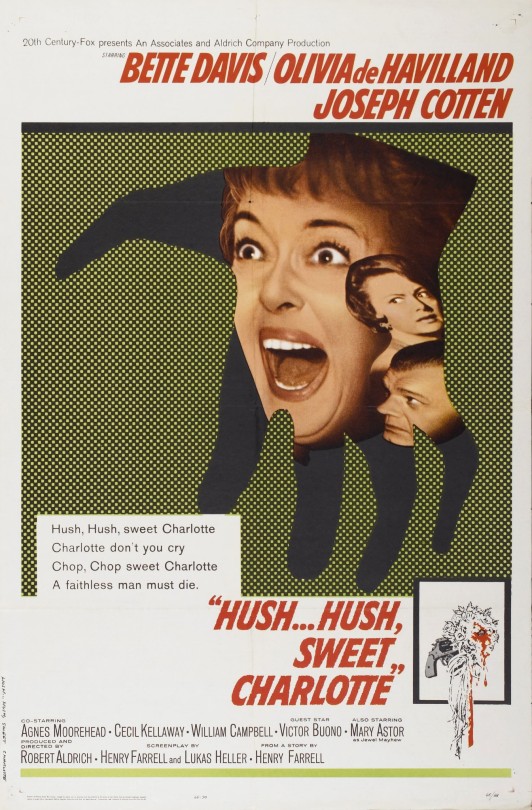

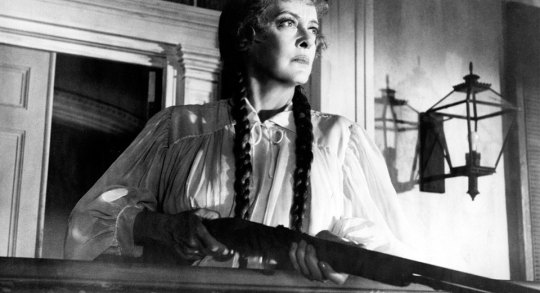
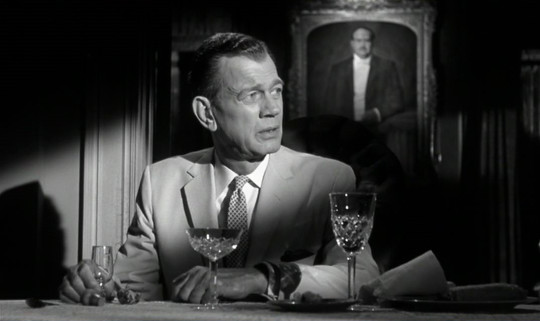
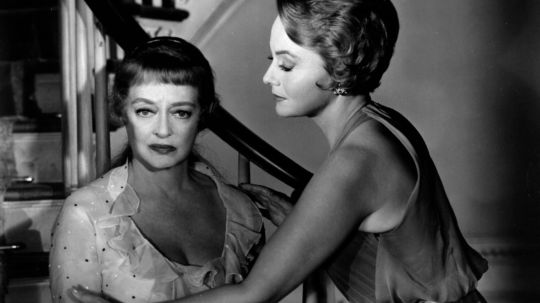
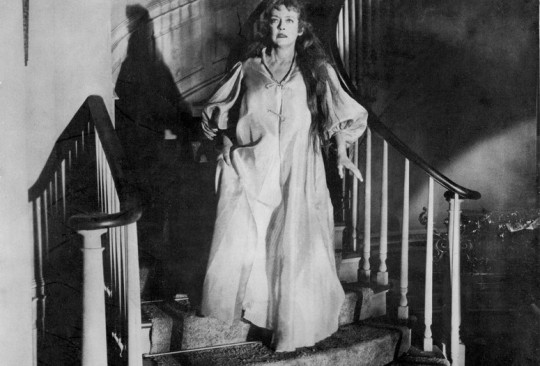
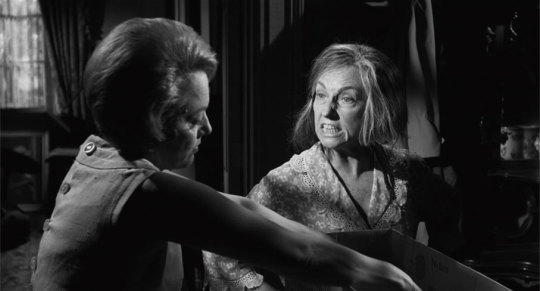
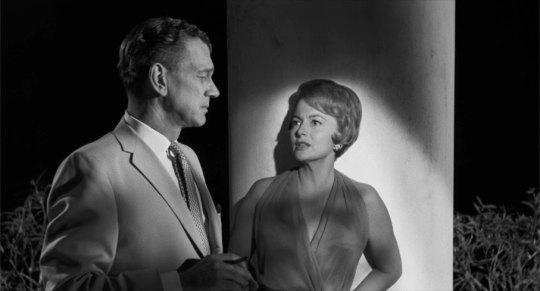
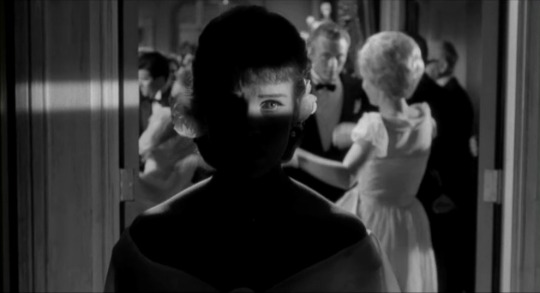
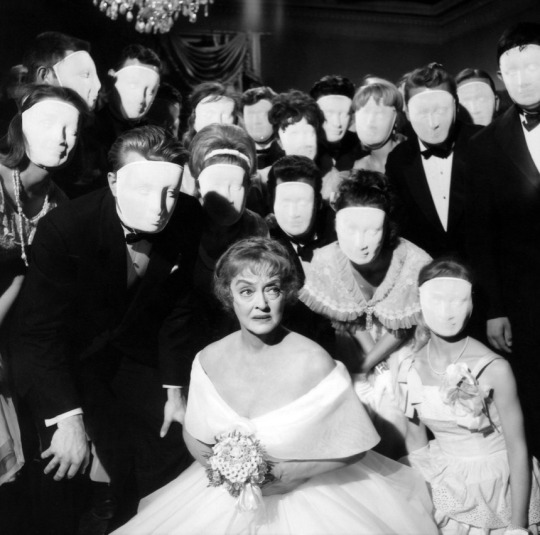
Hush...Hush, Sweet Charlotte (1964)
"Miriam? He really... isn't here, is he? Just now, I thought I heard... sometimes at night, when I wake up, it seems as if he really is here. Don't turn on the light. It's not real when it's light. It's only real when it's dark - dark and still."
#hush...hush sweet charlotte#hush...hush‚ sweet charlotte#robert aldrich#1964#american cinema#lukas heller#henry farrell#bette davis#olivia de havilland#joseph cotten#agnes moorehead#cecil kellaway#victor buono#mary astor#wesley addy#william campbell#bruce dern#george kennedy#frank ferguson#frank de vol#Aldrich's follow up to Baby Jane reunited him with star Davis (and initially Crawford‚ until she left the project under a cloud; she can#just about be glimpsed in one of the long shots of cousin Miriam arriving at the house by taxi) and even provides a cameo for Baby Jane co#star Buono. the rest of his cast is also notably starry: de Havilland‚ Cotten‚ Moorehead‚ even a genuine cinematic legend like Astor not to#mention a pre fame Dern and Kennedy. sadly all that increased star power doesn't translate to a film even better than its predecessor#this is solid‚ a strong and sweaty gothic grotesquerie‚ but it's a little flabby and nowhere near as sharp or as honed as Baby Jane was#Davis often goes very large and brushes caricature more than once with her faded Southern belle but to give her her dues there are other#moments of true heartbreaking beauty in her performance. de Havilland is also very strong altho maybe tips her hat a little soon in#revealing the true personality lingering beneath the surface of her mysterious outsider. Aldrich is as strong as ever helming a killer#fantasy sequence... tbh the more i think about it the kinder my memory of this becomes. it has just one main flaw and that's that it isn't#Baby Jane. but then what is? Aldrich never quite hit those heights again (tho he did some p great work) and this is a commendable try
24 notes
·
View notes
Text

FRIDA isn't going to let any bird mess THEIR man 😤
Inspired by this post
#i was going thru my main blog and came across this#and thought it was hilarious as frida the prism about mother#so here we are#critical role#cr3#cr c3#critrole#critrole memes#bells hells#bell's hells#frida#f.r.i.d.a.#prism grimpoppy#mother the raven#fcg#cr fresh cut grass#fcgida#cr loveletters#love letters#text messages#text message#cr memes#cr shitpost#courtesy of me#cr campaign three#crit role#critrole meme
119 notes
·
View notes